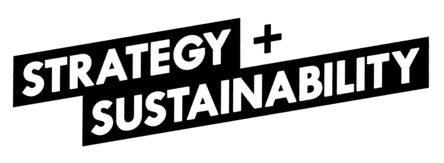Program structure
Upon the succesful completion of all module groups in the SAS program, the Faculty of Social and Economic Sciences (SOWI) awards the degree ?Master of Science“ (M. Sc.) in Strategy & Sustainability.
The program encompasses five module groups for a total of 120 ECTS (European Credit Transfer System):
- A: Strategy and markets (24 ECTS)
- B: Sustainability (24 ECTS)
- C: Digitalisation, people and culture (36 ECTS)
- D: Research seminars (12 ECTS)
- E: Master thesis (24 ECTS)
Within each of the five module groups, you can choose from a pool of available courses, which can be found in the current module handbook. Please note that the Master's programme is still in its infancy and the possible curriculum is constantly expanding (e.g. following the switch to English as the language of instruction).
- The current version of the module handbook can be found here: /abt-studium/aufgaben/modulhandbuecher/sowi/modulhandbuch-master-strategy-and-sustainability/
In the module group A "Strategy", you have to obtain 24 ECTS from two baskets, with 12 ECTS from the A1 basket and 12 ECTS from the A2 basket:
Basket A1 (12 ECTS):
- Org-M-05: Corporate Strategy and Growth
- Org-M-06: Strategic Renewal and Organizational Transformation
- VM-M-01: Price Management
Basket A2 (12 ECTS):
- Inno-M-03: Implementation and Diffusion of Innovations
- Org-M-07: Strategic Practice and Process
- PM-M-06: Change Management
- VM-M-02: Business-to-Business Marketing & Purchasing
- BFC-M-02: International Finance
- Fin-M-11: Strategic ESG-Risk Management
In the module group B "Sustainability", you have to obtain 24 ECTS from two baskets, with 12 ECTS from the B1 basket and 12 ECTS from the B2 basket:
Basket B1 (12 ECTS):
- CTRL-M-03: Sustainability Accounting & Reporting
- Inno-M-04: Organisationales Krisenmanagement
- Inno-M-09: Management of Sustainable Innovations
- VM-M-15: Sustainability and Responsibility in Management
Basket B2 (12 ECTS):
- MAEES1.2: Advanced Macroeconomics
- MAEES8.3: Macroeconomics and International Finance 3
- Fin-M-12: Sustainable (Corporate) Finance
- VM-M-25: Sustainability at the bottom of the pyramid
- VM-M-26: Corporate Responsibility and Product Management
- PWM-IE-V: Vorlesung (MA) Internationale und europ?ische Politik I
- IRWP-M-11: Research Seminar Sustainability Reporting
In the module group C "Digitalisation, People and Culture", you have to obtain 36 ECTS from two baskets, with 12 ECTS from the C1 basket and 24 ECTS from the C2 basket:
Basket C1 (12 ECTS):
- PM-M-02: The Future of Work
- PM-M-11b: European Human Resource Management Programme B
- SCM-M-07: Digital Transformation of Value Creation Systems
Basket C2 (24 ECTS):
- PM-M-03: International Dimensions of Human Resource Management
- PM-M-10: Leadership and Management Development
- PM-M-11a: European Human Resource Management Programme A
- PM-M-11c: European Human Resource Management Programme C
- VM-M-17: Designing a Life with Purpose
- VM-M-09: Intercultural Challenges in Customer and Account Management
- VM-M-14: Blockchain Applications for Business
- WiP?d-M-20: Educational Management
- WiP?d-M-14: International Vocational Education
- PWM-CS-V: Vorlesung (MA) Computational Social Science I
- PWM-CS-HS2: Hauptseminar Computational Social Science II
- Fin-M-13: Digitization Finance and FinTechs
In the module group D "Research Seminars", you have to obtain 12 ECTS. The offered classes prepare students - among other possible paths - to follow an academic career or to work in a private or public research institute. You can choose among the following alternatives:
- VM-M-04: Research Seminar Business-to-Business
- CTRL-M-02: Research Seminar Management Accounting & Sustainability
- Inno-M-05: Research Seminar on International Innovation Strategies
- Fin-M-14: Empirical Financial Markets Research
The module group E “Master Thesis” with 24 ECTS credits consists of the mandatory module "ORG-M-08 Qualitative Methodology in Strategy and Organization Research" (6 ECTS) and the master thesis (18 ECTS).
Information regarding the registration process for your master thesis is available from the exam office: Prüfungsamtes.
For the supervision of your master thesis you will typically contact a Professor in management (BWL). You may also address a request to the exam commission (Prüfungsausschuss) in case you wish to have another Professor from a different field as your supervisor (e.g. VWL, Soziologie, Politik). If so, you also need to obtain a "Betreuungszusage" (i.e., the confirmation of the willingness to supervise your work) from the Professor from the different field and include it in your demand to the exam commission. Your demand can be made by email.
It is in many cases possible to write your master thesis in cooperation with a company, a government agency, an NGO, or other organizations. The process needs to be coordinated by a chair (Lehrstuhl), typically by your supervisor.
Exemplary curriculum
Since the M.Sc. SAS is a four-semester program, you should earn 30 ECTS credits per semester. This corresponds to five lectures/seminars of 6 ECTS credits each. Below is an example of a study plan. You can customize it according to your interests and your desired skill profile by referring to the lectures or seminars offered in the respective baskets (A1, A2, B1, B2, C1, C2) in the module handbook.
The current version can be found here ? /abt-studium/aufgaben/modulhandbuecher/sowi/modulhandbuch-master-strategy-and-sustainability/.
![[Translate to English:] [Translate to English:]](/fileadmin/bwl-marketing/Bilder/SAS/Logo_Strategy_and_Sustainability.png)

